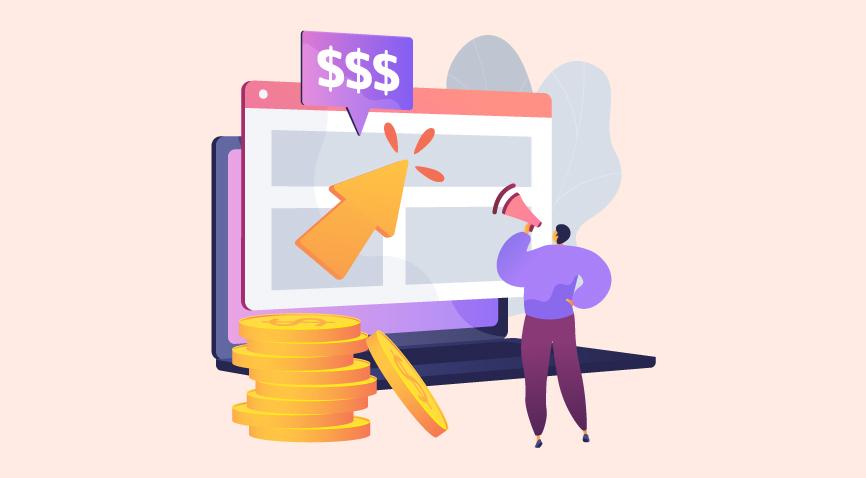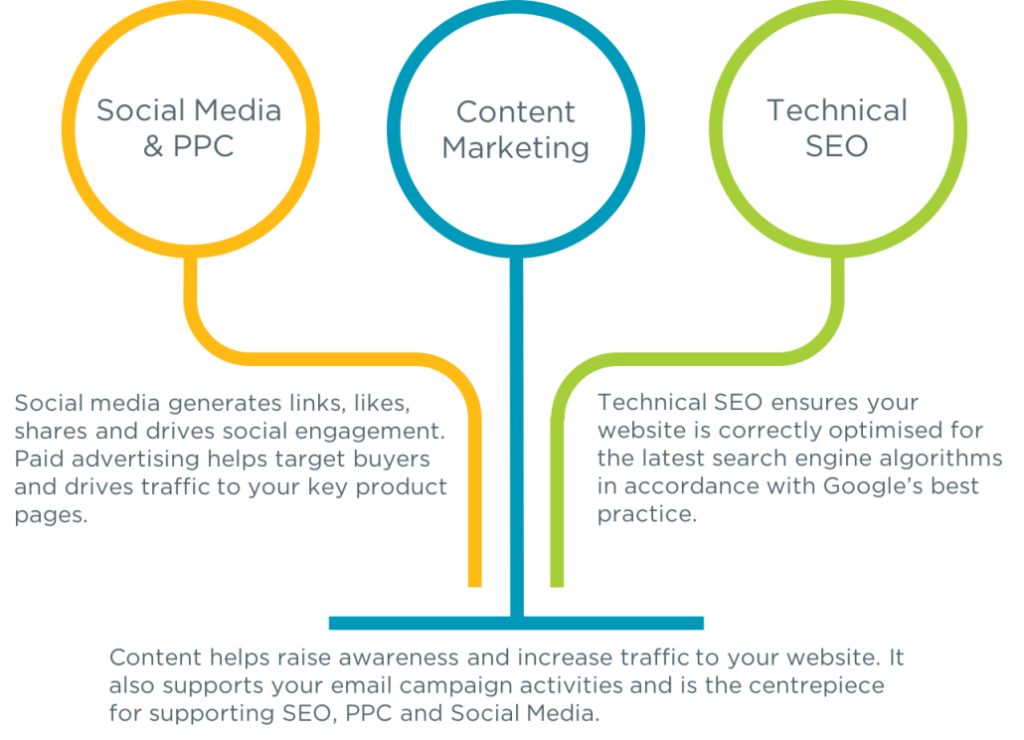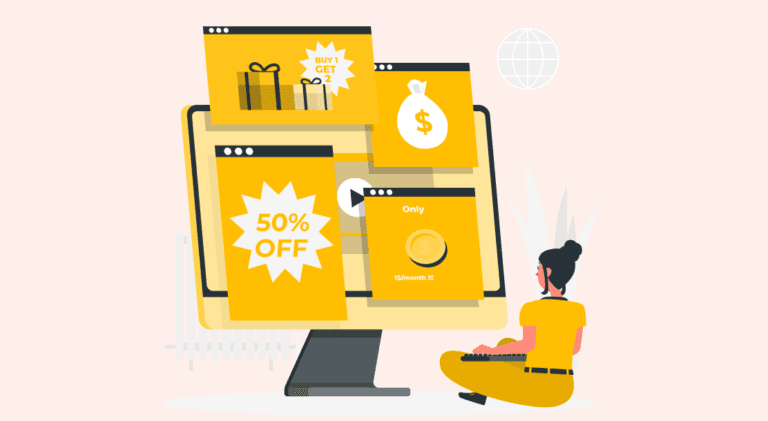
Table of contents
1. What is paid promotion?
2. Why should you choose paid promotion?
3. How to create content for paid media
4. Key takeaways
5. Conclusion
6. FAQs
Every year, thousands of content marketers increase their efforts and budgets for content distribution. But these efforts are of no avail if your audience is unaware of your content. What are paid promotion and paid media? Paid distribution or promotion is a crucial part of content distribution strategies. It is a technique to promote paid content across a number of channels. It helps ease your efforts at content distribution and ensures that it reaches your target audience. Of course, you must identify your buyer persona to determine your target audience.
A paid distribution system is a form of digital marketing, wherein social media and search engines permit paid content. An example is pay-per-click (PPC) advertising, wherein you do not pay until a user clicks on your ad. In this paid promotion tactic, you get the benefit of measuring and controlling your marketing efforts, which is missing in traditional methods of advertising.

What is paid promotion?
Paid promotion involves making use of various networks and platforms to distribute your content. Sponsored advertisements appear at specific spots, for a fixed number of times, and within predetermined periods, as they have been paid for. They may appear on newsfeeds of various social media sites or in published articles. Paid distribution helps drive more traffic to your website.
No marketer can deny that content is essential for your website’s success. It is imperative to create unique content, which needs to be refreshed and updated periodically. First, you must write quality, relevant content, optimize it for search engines, and then share it on social media platforms. A paid distribution system supports and strengthens your marketing efforts.
Why should you choose paid promotion?
Did you know that millions of people search on Google for a specific product or service? Most of these people are looking for solutions, presenting marketers with a fantastic opportunity. This roughly answers the question, “what is paid media?”
Paid promotion is fast replacing all traditional methods of content marketing. People are no longer interested in flashy banner ads, but rather trust sources that educate them before offering them anything. Today, no one takes a brand at face value; they want to know what the brand stands for, how good its content is, whether it has many takers, etc.
Now, what is paid social media advertising? It is the process of circulating sponsored content on various social media sites, such as Facebook, Instagram, Twitter, and more. By opting for paid promotion, you can be sure that your content is viewed by the right people at the right time. It will appear on newsfeeds at a specific time, so it is more likely to be seen.
One of the significant benefits of paid promotion is increased reach, which allows your content to be seen by more people. Moreover, paid promotion enhances brand visibility, increasing your engagement with people who may otherwise not know about your brand. Since paid advertising is measurable, it can help you gain valuable audience insights. This can enable you to refine, refurbish, and optimize your content based on how it is received by your audience.

How to create content for paid media?
Here are a few handy tips to create paid content:
1. Content Contribution
Content contribution plays a vital role in establishing your brand by collaborating with other businesses to help establish their brand. You must create content and distribute it via a paid contribution system for increased brand visibility. Moreover, your brand gets rated highly when you piggyback on another brand or vice versa. If businesses ask you to collaborate with them and contribute to their content, it is not a scenario of direct competition, but one of mutual benefit.
Companies like this may have spare ad space or maybe short on quality content, but they help you reach your target audience by inviting you to contribute your content. You need to check out the options on Facebook or Instagram, where you can reach your target audience by paying for ads. You can research the various ways in which you can run paid promotion campaigns on social media.

1. Google Ads
Google Ads is one of the most important online advertising tools today. In ad auctions, Google decides which ads to show and where. Basically, you can pay Google to bid on keywords that relate most to search queries. If your ad rank is high (depending on the keyword), your content will appear in the search results.
2. Audience insights and analysis
You must track your return on investment (ROI) periodically (daily or weekly). Many new marketers are unaware of the significance of tracking metrics. They make it easy for you to determine how many people have clicked on your ads, how many repeat customers you’re getting, and what it costs you. Such vital information helps you understand when and how to tweak your campaign. You can track your conversion rates on Google Analytics, which allows you to determine which of your paid campaigns provide the best returns.
Key takeaways
- Identify your target audience by defining your buyer persona before opting for paid promotion.
- Timing is of essence, and circulating your ads at the right time and place helps bring about the desired results.
- Using content featuring appropriate and high-performing keywords is crucial. Moreover, the content must be relevant to your target audience.
Conclusion
We hope this blog helped answer the question, “what are paid promotions and paid media?” While organic promotion is preferable as it costs nothing but concentrated efforts, it may not work overnight. For best results, you must opt for paid distribution as it almost guarantees results. However, the focus must be on creating compelling content, which is the key to success.
FAQs
A paid promotion system can work well only with the right content, which needs to be shared with the relevant people at the appropriate time. You must first ask yourself, “What is paid media all about”? And then use influencers and different mediums to reach out to your target audience. You may also want to diversify your content to promote it with different content communities.
The term paid promotion simply means paying for media space where your content can be published and distributed. Content in the form of ads is generally targeted toward a select audience base, often established after determining your buyer persona. Paid promotion, hence, can be simplified as seizing an opportunity to experiment with your content and tweak or streamline it if it isn’t working with your audience.
First, you must have a content distribution framework in place. Then take a closer look at your objective. An effective content distribution strategy involves knowing your audience, right up to the minutest details. You should then focus on selecting the appropriate digital platform. Create the most suitable ad format and build a campaign around it. Don’t forget to set your budget before starting.
Your content distribution plan must include social media, as it is the primary source of traffic. You can also use social media for testing the efficacy of your storytelling. However, you need to identify your target audience before you choose a platform. For instance: while baby boomers hang out on Facebook, millennials and Gen Z users predominantly use Instagram.
For your strategy to work, you must first determine your budget. Follow this by defining your objectives clearly and focusing on identifying your key performance indicators (KPI). Next, you need to identify your target audience on social media. Before launching the campaign, fix a specific period for it to run.
Latest Blogs
Explore how Google’s 2025 AI search updates triggered ranking chaos. Learn actionable strategies to adapt your SEO for AI Overviews, zero-click searches, and SERP volatility. Stay ahead now.
Learn how to rank on AI search engines like ChatGPT, Perplexity, and Gemini by optimizing your content for authority, structure, and relevance. Stay ahead in AI-driven search with this strategic guide.
Explore the best healthcare SEO services for your medical practice. Improve online visibility and effectively reach more patients in need of your services.
Get your hands on the latest news!
Similar Posts

Advertising
4 mins read
5 Square Yards Ads That Caused Traffic Jams

Advertising
8 mins read
How the Nirma Ad Has Evolved Over the Years

Advertising
6 mins read